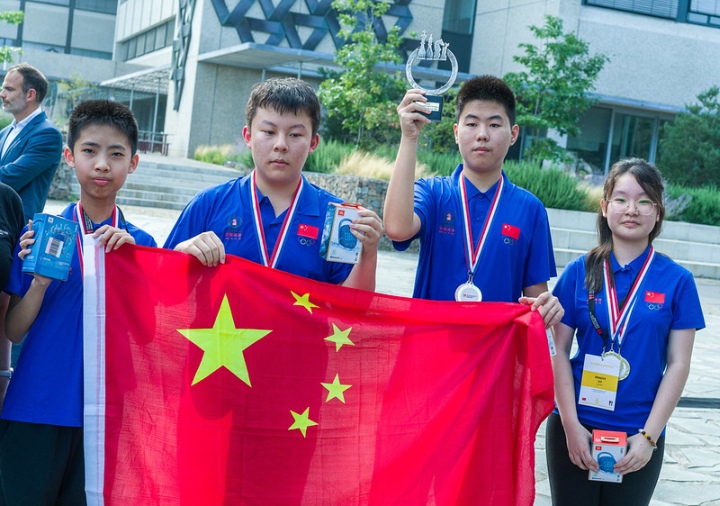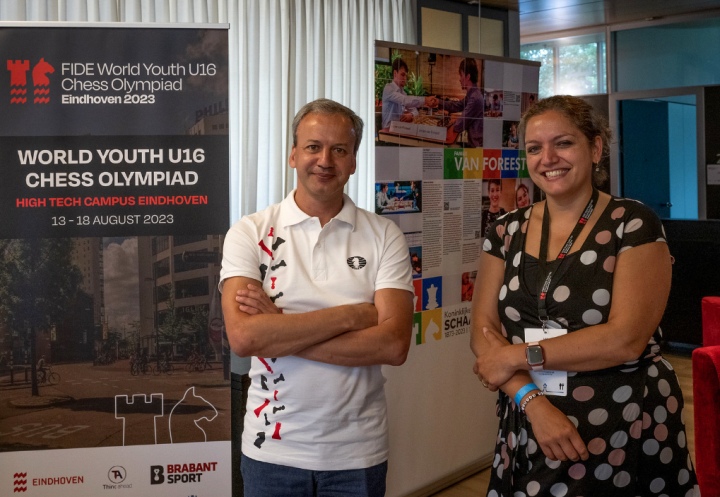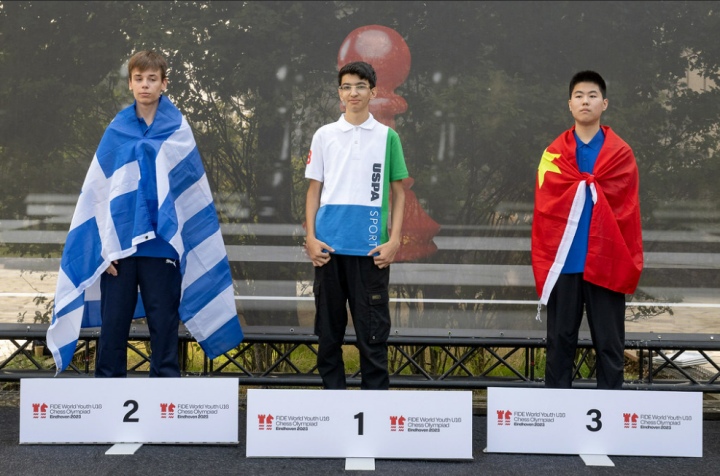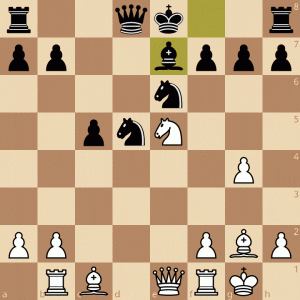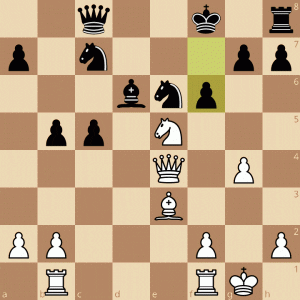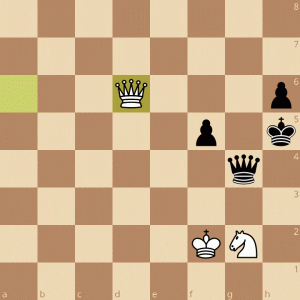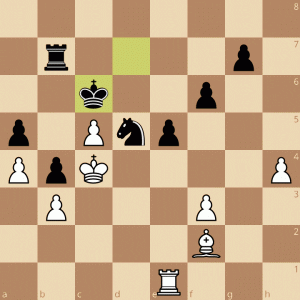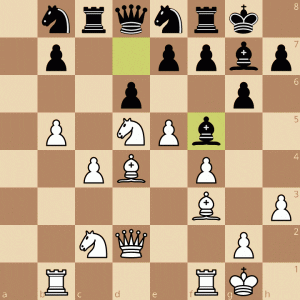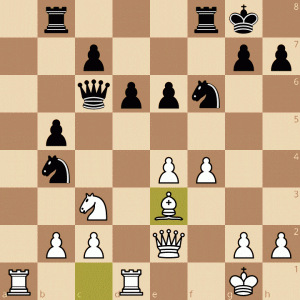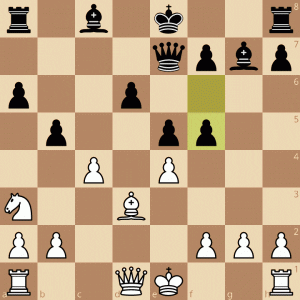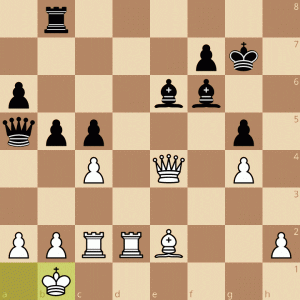Salimova eliminates Muzychuk after two rapid tiebreak matches. Praggnanandhaa clinches the last remaining place in the semifinals after a gruelling seven-game tiebreak duel with Erigaisi
Bulgaria’s IM Nurgyul Salimova is having a spectacular run in the World Cup and will be playing in the finals after knocking out Anna Muzychuk, defeating her with 1.5:0.5 in the second tiebreak match. Both played sharp and decisive games in the tiebreaks, with only one ending in a draw. Salimova will compete against Aleksandra Goryachkina in the Women’s World Cup finals, while Anna Muzychuk will face Tan Zhongyi in the battle for third place. Both matches will start on Saturday, 19th August, alongside the semifinal matches in the Open.
The tiebreak in the Open section today lasted notably longer than that in the Women’s: In a sharp duel which saw a heavy exchange of blows in each game, after two rounds of rapid and a round of blitz, everything came down to one, single, blitz game. Playing as White, Praggnanandhaa took the initiative early on, forced a winning rook endgame and ended up victorious, clinching the last free place in the final four.

The Open Tournament Highlights
Arjun Erigaisi and R Praggnanandhaa were the only two participants of the Open to head to the tiebreaks in round six. In the regular part of the round, somewhat unusually, the opponents traded victories with black pieces.
Both games in the first rapid tiebreak today ended in a draw, with neither side achieving a substantial advantage.
In the second tiebreak match, Praggnanandhaa took the lead after winning with Black again. This is even though Erigaisi had a better position from move 12. In a rook and queen endgame, Erigaisi was winning. The critical moment of the game came after Black’s 44th move: White had an overwhelming advantage but untimely went for an exchange of queens which resulted in him losing an advanced passer on the a-file. In an even rook endgame, with both sides having two passers on opposite flanks, Arjunn misplayed, eventually ending with a rook against a queen and capitulated soon after.

However, in the second game, the reverse happened: Praggnanandhaa made a serious opening mistake on the White side of the Queen’s Gambit Declined, allowing Black to save his place in the race by scoring a victory.
Then came the third tiebreak – this time, in the Blitz (with five minutes for each player, plus three seconds of bonification, starting from move one). Praggnanandhaa (playing as Black) took the initiative early on, securing a sizable advantage from the opening and maintaining it throughout. In a topsy-turvy game two that followed, Pragg was clearly better at some point in the transition towards the endgame, he overlooked a rook and ended up losing.
Now, everything was hanging on just one game. Praggnanandhaa was White. In the Reti opening, White emerged slightly better. Erigaisi began to falter, making imprecisions, losing a pawn and gradually handing ever more space to White. Praggnanandhaa finally broke through, entering a completely winning rook endgame. He finished with two pawns and a rook against a rook. On move 72, Erigaisi had to accept the inevitable and resign.

The Women’s Tournament Highlights
Anna Muzychuk’s troubles started early on, in the first rapid tiebreak game. Playing as White, Muzychuk responded well to the Tartakower line of the Caro-Kann played by Nurgyul Salimova. With opposite castles, Black made a premature attempt to advance on White’s queenside and ended in a weaker position, giving up a pawn without much compensation. However, in the proceeding moves, Muzychuk chose the wrong plan and underestimated the threats posed by Black’s bishops. In an unpleasant but still holdable position for White, Muzychuk made her biggest error snatching Black’s rook and was immediately lost.
In game two Muzychuk bounced back. In the Dutch Defence, leading black pieces, Muzychuk managed to get the upper hand in the transition to an endgame, winning a pawn. At one point, Black dropped the advantage but Salimova blundered again, entering a lost rook endgame.

In the second tiebreak, Salimova again started well – defeating Muzychuk with the white pieces, finishing with a nice checkmate combination. In game two Muzychuk tried to push in an even position but ended up overlooking a piece. Salimova promptly traded all White’s active pieces and liquidated into a won endgame where she settled for a draw by repetition which propelled the Bulgarian into the finals.
Friday, the 18th of August is a rest day. The games continue on Saturday, 19th of August.
Here follows a closer look at some of the top games from Round 6 tiebreaks:
In the first game of the second tiebreak match, Arjun Erigaisi had a notably better position as White.
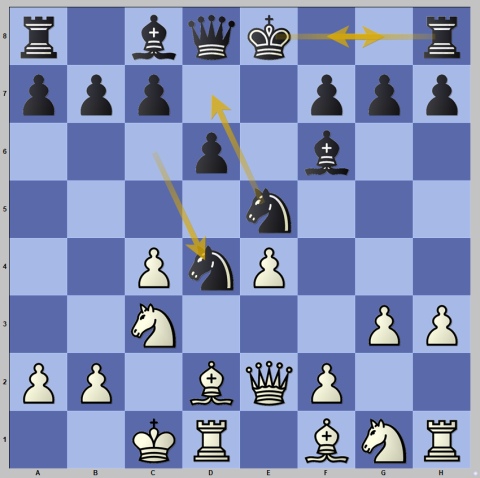
This is the position after just 11 moves. Black just made a mistake by placing the knight on d4 instead of on Nd7 or castling. Erigaisi continued to play natural moves and his advantage gradually increased.
Following an exchange of pieces in the centre, the two reached the following position:

White has the decisive advantage. He has an extra pawn while Black’s pawn on d6 is weak and, overall, White’s pieces are better positioned.
31…Rb5 32.Rd2 Rb3 33.Rd3? The first serious innacuracy by Erigaisi. He should have kept his rook on the second line and activated his queen.
Now, however, Praggnanandhaa made a serious mistake 33…Rb6?. He should have just gone for an exchange of rooks and but understandably he tried to keep as many pieces as possible on the board.
In the moves that followed neither Arjun was more precise. In addition, Pragg dropped another pawn to create some chances but entered completely lost position:
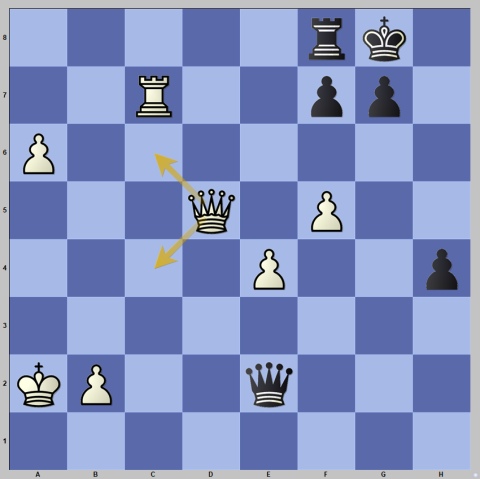
White has an overwhelming position (+13 Stockfish). Indeed after 45.Qc6! Qe1 46.a7 Qa5+ 47.Kb3 Black runs out of checks. Instead, Arjun completely dropped the advantage with 45.Qc4??
Now after the exchange of queens, the position is equal as White loses his a6-passer. A huge gift by Erigaisi which Praggnanandhaa enthusiastically accepted.
45…Qxc4 46.Rxc4 Ra8 47.b4 Rxa6+ 48.Kb3 h3 49.b5 Rh6 50.Rc8+ Kh7 51.Rc1 g5 52.fxg5 fxg5
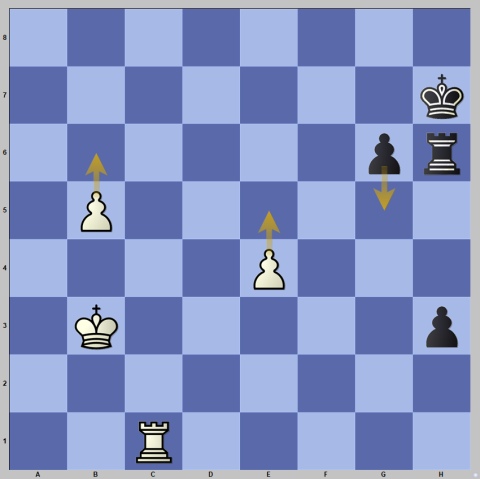
Over the last several moves things changed drastically. Here White could have maintained equality with the only move 54.e5 but Erigaisi didn’t play this. Instead: 54.b6? but after precise 54…g5! Black’s connected passers are much stronger and faster than White’s isolated paws.
55.Rc7+ Kg8 56.Rc8+ Kf7 57.Rc7+ Ke8 58.b7 Rb6+ 59.Kc4 g6 60.Rh7

60…Rxb7! Sacrificing the rook but promoting a queen.
After 61.Rxb7 h2 62.Rh7 g3 63.Kd5 g2 64.Rxh2 g1=Q Black is completely winning.
Erigaisi resisted for a few more moves but had to resign. 0-1, 78 moves
In the second game of the second tiebreak, Erigaisi won, after Praggnanandhaa made several imprecise moves in an even position.
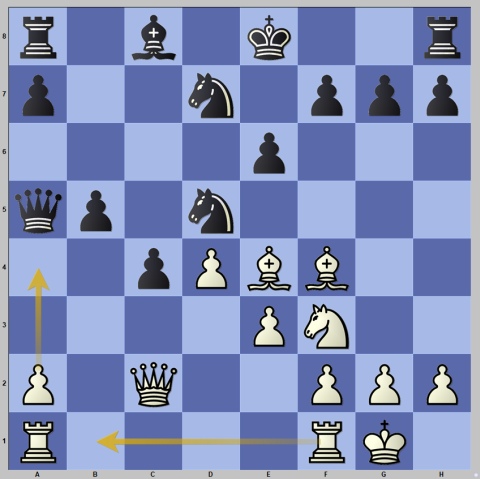
15.a4? (15.Rfb1! with a roughly equal position) Immediately allowing 15…b4. 16.Nd2 b3 17.Nxc4 Qb4 18.Qd3? And White’s pieces are hanging across the board.
18…Nxf4 19.exf4 Ba6 20.Qd2? Rb8 21.Qxb4 Rxb4 22.Nd6+ Ke7 23.Nb5 b2 24.Rab1 Bxb5 25.axb5 and Black is dominating. 0-1, 28 moves
The tiebreaker between Praggnanandhaa and Erigaisi was decided in the seventh game of the tiebreaks. After ending tied in two rapid matches and one blitz match, it all came down to the last blitz game.
Praggnanandhaa was playing as White. In the Reti opening Erigaisi allowed his opponent to take the initiative early on and reach a better position. By move 30, Praggnanandhaa was winning:
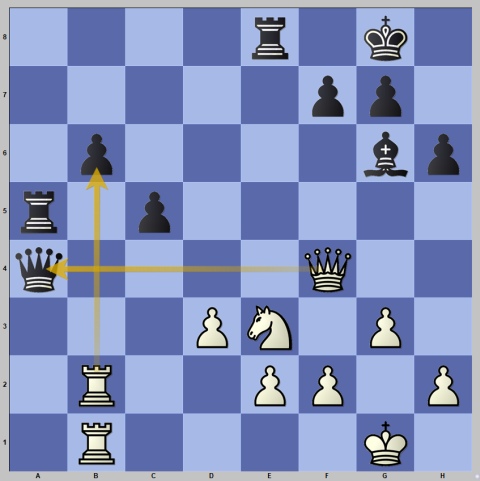
After the queens are removed from the board all White needs is patience and solid technique.
31.Qxa4 Rxa4 32.Rxb6 Kh7 33.Rbb1 Ra1+ 34.Kg2 Rc1 35.Rc6 Re5 36.Rc8 Bf5 37.Nxf5 Rxf5 38.f4 Rd5
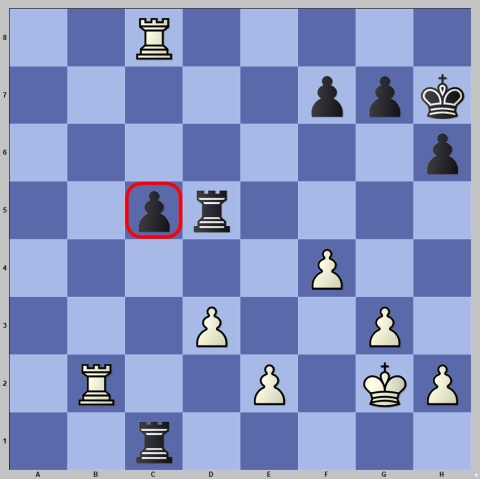
Black has a weak pawn on c5 that will soon fall. At the same time, White’s pawns are well-connected and supported. Praggnanandhaa soon forced an exchange of pawns and a pair of rooks and ended up with two extra runners and completely winning.
A great success for the Indian GM who just turned 18 a few days ago.
The breaking point in the Women’s tiebreaks today happened in the first game of the second rapid, where Anna Muzychuk lost as Black to Nurgyul Salimova. In the Queen’s Gambit Accepted, Anna opted for the line that is considered to be difficult for Black:
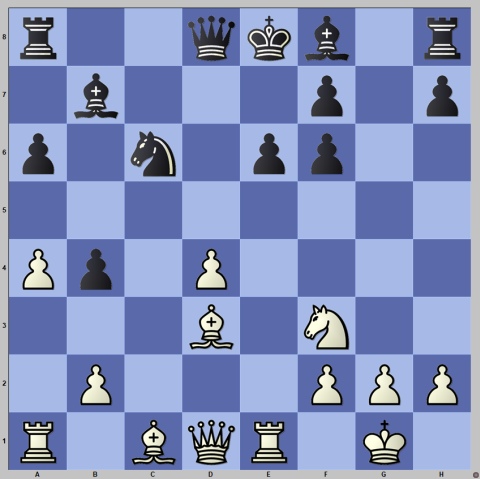
White is already better Muzychuk a series of inaccurate moves that quickly turned her position into hopeless one: 13…Na5 14.Bf4 Rc8 15.Qe2 Bd6 16.Bh6 Nb3 17.Rd1 Qa5
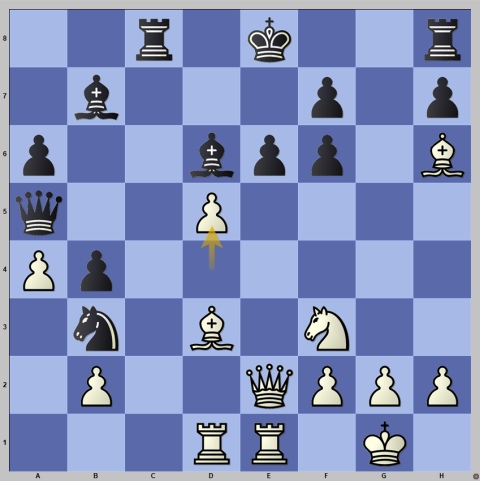
18.d5! After this break in the center White is completely winning, and Nurgyul has done so in style! Bxd5 19.Bxa6 Rc5 20.Bb5 Kd8 21.Be3 Rc7 22.Rxd5!! exd5 23.Bb6!!
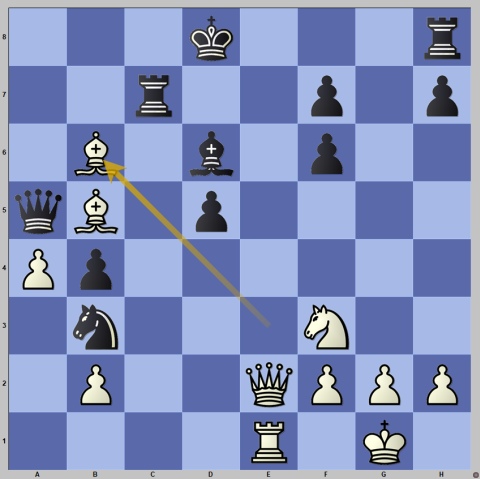
Muzychuk resigned. 1-0
Text: Milan Dinic
Photo: Stev Bonhage, Anna Shtourman , and Maria Emelianova (chess.com)
About the event
The FIDE World Cup 2023 is taking place from 29 July to 25 August 2023 in Baku, Azerbaijan.
In the Open tournament, 206 players were eligible to take part and 103 in the Women’s event.
There will be eight rounds in the Open and seven in the Women’s tournament. Each round will be played under a knock-out system, consisting of a 2-game match. In the case of a tie, the players will play a rapid and, if necessary, a blitz tiebreak until the winner is determined.
The winners of the top three places in both sections will qualify for the 2024 Candidates tournament.
In both events, the time control for each game is 90 minutes for the first 40 moves, followed by 30 minutes for the rest of the game with an increment of 30 seconds per move starting from move 1.
The prize fund for the entire event is 2.5 million US Dollars, with $1,834,000 in the Open and $676,250 in the Women’s tournament. The 2023 FIDE World Cup has the largest prize fund for any chess tournament ever played.
More information about the event: worldcup2023.fide.com/
Regulations:
Open tournament: handbook.fide.com/files/handbook/WorldCup2023Regulations.pdf
Women’s event: handbook.fide.com/files/handbook/WWorldCup2023Regulations.pdf
Schedule: worldcup2023.fide.com/schedule

